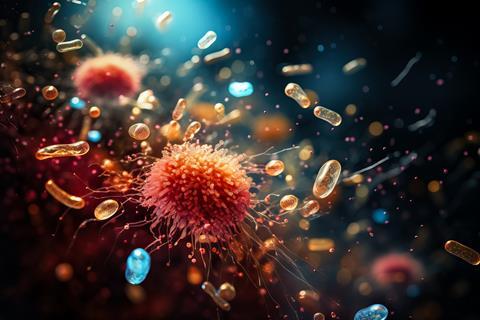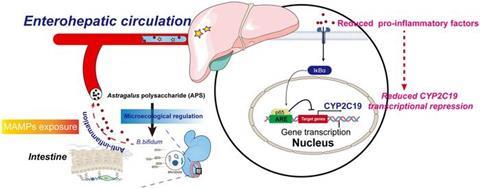Astragalus polysaccharide alleviates the reduction of VRC metabolism induced by LPS by inhibiting lipid accumulation and inflammatory cytokine levels in the serum and liver and improving the metabolic function of the liver, a new study shows.

VRC metabolism was increased by increasing the abundance of Bifidobacterium bifidum in the intestine, reducing the secretion of anti-inflammatory factors in the liver, and increasing the activity of CYP2C19, the study, published in Journal of Clinical and Translational Hepatology, reveals.
Background and aims
Voriconazole (VRC), a widely used antifungal drug, often causes hepatotoxicity, which presents a significant clinical challenge. Previous studies demonstrated that Astragalus polysaccharide (APS) can regulate VRC metabolism, thereby potentially mitigating its hepatotoxic effects. In this study, the authors aimed to explore the mechanism by which APS regulates VRC metabolism.
First, the authors assessed the association of abnormal VRC metabolism with hepatotoxicity using the Roussel Uclaf Causality Assessment Method scale. Second, they conducted a series of basic experiments to verify the promotive effect of APS on VRC metabolism. Various in vitro and in vivo assays, including cytokine profiling, immunohistochemistry, quantitative polymerase chain reaction, metabolite analysis, and drug concentration measurements, were performed using a lipopolysaccharide-induced rat inflammation model.
Finally, experiments such as intestinal biodiversity analysis, intestinal clearance assessments, and Bifidobacterium bifidum replenishment were performed to examine the ability of B. bifidum to regulate the expression of the VRC-metabolizing enzyme CYP2C19 through the gut–liver axis.
What they found
The results indicated that APS does not have a direct effect on hepatocytes. However, the assessment of gut microbiota function revealed that APS significantly increases the abundance of B. bifidum, which could lead to an anti-inflammatory response in the liver and indirectly enhance VRC metabolism. The dual-luciferase reporter gene assay revealed that APS can hinder the secretion of pro-inflammatory mediators and reduce the inhibitory effect on CYP2C19 transcription through the nuclear factor-κB signaling pathway.

APS alleviates the reduction of VRC metabolism induced by LPS by inhibiting lipid accumulation and inflammatory cytokine levels in the serum and liver and improving the metabolic function of the liver. VRC metabolism was increased by increasing the abundance of B. bifidum in the intestine, reducing the secretion of anti-inflammatory factors in the liver, and increasing the activity of CYP2C19. In particular, high-dose APS (600 mg/kg) more strongly improved VRC metabolism. These results provide important insights into the pharmacological mechanism of action of APS and the development of clinical preparations.







No comments yet